The costing revolution
Prioritise the patient, care about the cost.
Sign up to the Institute newsletter
If your organisation is an Institute partner you can sign up to our monthly newsletter today!
The costing revolution
As a part of our Innovation theme, this workstream aims to improve collaboration with the wider finance and non-finance function on:
- the importance of costing
- how costing has changed
- their role in costing
- using costing data as business intelligence.
Costing practitioners have been working tirelessly up and down the country to implement mandatory patient-level costing in their organisations.
Now, it is essential that patient-level cost and activity data is adopted as a part of everyday decision making, is used by clinicians to improve services for patients and is regarded as the future of financial management and reporting.
Through this workstream the Institute seeks to raise the profile of patient-level costing information and increase recognition of its importance to non-costing roles including those outside of the finance function.
Costing for different roles
Integrated care boards, as part of the wider integrated care system, have aims that include improving outcomes in population health, tackling inequalities, enhancing productivity and value for money and helping the NHS to support broader social and economic development. To meet these aims, it is essential that systems have open and honest discussions about how to use constrained resources to deliver the maximum value for patients, for the NHS, and for wider society. These discussions need to be informed by relevant finance and activity data and linked to data on the health needs of the population and outcomes achieved. Adopting a value-based approach to improving population health will support the delivery of the ICB’s aims and will enable the transformation of NHS services in a sustainable way.
Click here to find out more about your role in costing.
“For me, obtaining best value comes down to the intelligent use of data to make good decisions – whether you are an integrated care board deciding what investments will have the greatest impact on your population’s health, a provider seeking to optimise a care pathway or a clinician wanting to obtain excellent outcomes for patients. In our resource-constrained world, optimal or best-value decisions will be made by combining our excellent costing information with the wealth of outcome and performance data we have at our disposal in an intelligent way.”
Finance director and HFMA past president
The richness of PLICS data can support clinicians in many ways. It can provide granular cost and activity information for quality improvement projects, identify and help explain clinical variation, support improvements inpatient care and help to drive value by linking costs and outcomes that matter to patients.
Click here to find out more about your role in costing.
“I didn’t know PLICS existed two years ago, I had no idea what it was. To have come so far and to be able to use the information to describe a service, its been revolutionary for me.”
Consultant physician in medicine and diabetes
Finance business partners are the finance ambassadors to clinical specialties and services. These services need to ensure that they use their resources in the most effective way possible to provide high quality care to patients. Patient-level costing information provides you with a rich source of costing and activity information to support services achieve this, whether it be for service design, efficiency programmes or other improvement initiatives.
Click here to find out more about your role in costing.
“PLICS is the future of financial management and reporting. Why wouldn’t you want to be at the cutting edge of this?”
Senior finance business partner, acute NHS trust
Informatics professionals play a key role in ensuring that their organisation has good business intelligence to support data-driven decision making. Patient-level costing data, combined with other data sources, provides a rich source of information to help you understand your patients and services. PLICS requires robust activity data and Informatics have an important role to play in validating the accuracy of data.
Click here to find out more about your role in costing.
“PLICS can help divisions within the trust to better understand their specialties and identify opportunities to improve patient care. PLICS information can show trusts outliers against internal KPIs or national standards when bench marked against other trusts.”
Informatics lead, NHS trust
Management accountants play a vital role in controlling costs for their organisation. Patient-level costing information provides you with a rich source of costing and activity information to help you identify, analyse and understand variances or unexpected outliers when they occur.
Click here to find out more about your role in costing.
“PLICS is a great tool to use when building business cases. It can help you understand the potential impact of changing services.”
Management accountant, NHS trust